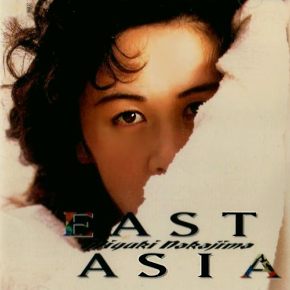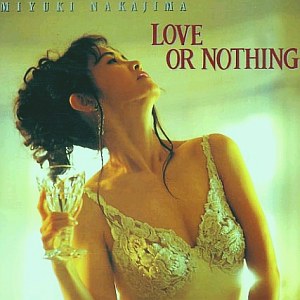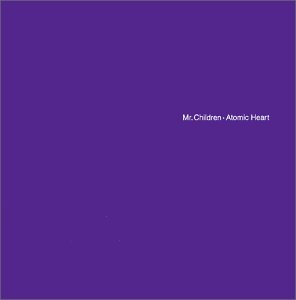Mr. Children, commonly referred to by their contracted nickname "Misu-Chiru" (ミスチル), are a Japanese pop rock band formed in 1989. Consisting of Kazutoshi Sakurai, Kenichi Tahara, Keisuke Nakagawa, and Hideya Suzuki, they made their major label debut in 1992. They are one of the best selling artists in Japan and one of the most successful Japanese rock artists, having sold over 75 million records and creating the "Mis-chil Phenomenon" (ミスチル現象) in the mid-1990s in Japan. They held the record for the highest first week sales of a single in Japan for 15 years, with 1.2 million copies of their 10th single "Namonaki Uta" (名もなき詩), have 30 consecutive number 1 singles, replaced Glay as the all-male band to have the most number 1 albums on the Oricon charts, and won the Japan Record Award in 1994 for "Innocent World" and in 2004 for "Sign". As of 2012, Mr. Children has published fifteen original studio albums and 34 physical singles, along with five compilations, a live album, and fifteen home video releases.

Six/Nine is the eighth studio album by the Japanese rock band Buck-Tick. It was released in a clear purple case on May 15, 1995, through Victor Entertainment.

East Asia is the 20th studio album recorded by Japanese singer-songwriter Miyuki Nakajima, released in October 1992.

Love or Nothing is the 22nd studio album by Japanese singer-songwriter Miyuki Nakajima, released in October 1994.

Off The Lock is the second studio album by the Japanese rock duo B'z, released on May 21, 1989. It was the second album they released for BMG Victor's Air Records imprint.

Darker Than Darkness: Style 93 is the seventh studio album by the Japanese rock band Buck-Tick. It was released on June 23, 1993, through Victor Entertainment. The album peaked at number two on the Oricon chart, became a certified gold seller by July 1993, and subsequently sold 213,260 copies. Darker Than Darkness: Style 93 was digitally remastered and re-released on September 19, 2002, with two bonus tracks. It was remastered and re-released again on September 5, 2007. "Dress" was remixed and used as the opening theme for the anime Trinity Blood (2005), this version was also released as a single. The album was named one of the top albums from 1989 to 1998 in a 2004 issue of the music magazine Band Yarouze.

Shinkai (深海) is the 5th studio album recorded by Japanese rock band Mr. Children, released in June 1996 under the record label Toy's Factory.

Atomic Heart is the fourth studio album by Japanese rock band Mr. Children, released in September 1994. The album features two successful lead singles "Cross Road" and "Innocent World".

Versus is the third, and second full-length album, by Japanese rock band Mr. Children released on September 1, 1993. The album debuted on the Japanese Oricon music charts at #3 and sold 802,140 copies during its run on the chart. Just like the previous two albums, Versus contains only one single released on July 1, 1993, titled "Replay" with another album track "And I close to you" also being included in Mr. Children's fourth single "Cross Road". Versus also marked the first time use of Takeshi Kobayashi as a writer and composer for Mr. Children.

Everything, is the seven-track EP recorded by Japanese pop rock band Mr. Children, released under the record label Toy's Factory in May 1992. It has generally been considered their first studio album.

Kurutta Taiyou is the sixth studio album by the Japanese rock band Buck-Tick. It was released on cassette and CD on February 21, 1991, through Victor Entertainment. The album was digitally remastered and re-released on September 19, 2002, with two bonus tracks. It was remastered and re-released again on September 5, 2007. "Speed", "M・A・D" and "Jupiter" were later re-recorded for the group's compilation album Koroshi no Shirabe: This Is Not Greatest Hits (1992).

Break Through is the third studio album by the Japanese rock duo B'z. The album debuted at number 3 on the Oricon Weekly Albums Chart, being their last studio album not to reach number 1. It sold 41,700 copies in its first week and sold a total of 724,640 copies during its chart run. It was eventually certified Million by the RIAJ in January 1994.
Kimi ga Ita Natsu is the first, and debut, single released by Mr. Children on August 21, 1992.
Dakishimetai (抱きしめたい) is the second single released by Mr. Children on December 1, 1992.
"Replay" is the third single released by Mr. Children on July 1, 1993.
"Cross Road" is the fourth single released by Mr. Children on November 10, 1993.
"Innocent World" is the fifth single by Japanese rock band Mr. Children, released on June 1, 1994, by Toy's Factory. This was their first single in about seven months since their previous work, "Cross Road," and its release came at a time when their popularity had risen incrementally due to the long-term success of their aforementioned previous single. "Innocent World" served as the advertising jingle for Coca-Cola Japan's "Aquarius Iosis" beverage.
"Tomorrow Never Knows" is the sixth single released by Mr. Children on November 10, 1994. The single sold 2.766 million copies and is the eighth-highest-selling single in Japan in the Oricon history.
"Everybody Goes " is the seventh single released by Mr. Children on December 12, 1994.

(An Imitation) Blood Orange is the fifteenth studio album by Japanese pop rock band Mr. Children and was released on November 28, 2012. It was the band's first studio album in two years. The album consists of a total of 11 tracks, including their triple A-side single, "Inori: Namida no Kidou" / "End of the Day" / "Pieces", released in April 2012, as well as "Hypnosis". "Joutoku" was used as the theme song for Ikuta Toma's drama Osozaki no Himawari: Boku no Jinsei, Renewal and their charity digital single "Kazoe Uta", released in April 2011, for victims of the 2011 Tōhoku earthquake and tsunami. This album was released in two versions: a limited CD+DVD edition and a regular CD-only edition, but the same price. The limited edition comes with a DVD including the PVs for "Hypnosis", "Marshmallow Day", "Inori: Namida no Kidou", and "Joutoku".












